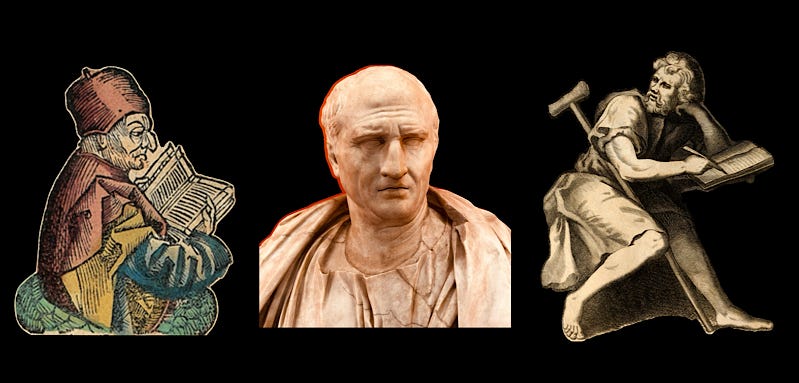Stoic role ethics: a primer
One of the most innovative aspects of Stoicism could be one of the best ways to live your life

We all play a number of roles in life, whether we explicitly think about them or not. For instance, I am, at least: a son, a father, a husband, a friend, a teacher, a colleague, a writer, and a citizen of two nation-states (Italy and the US). You can tell a lot about a person by identifying their roles and observing how they play them. In fact, arguably you can tell almost all there is to know about that person on the basis of such information.
That being the case, can we base an entire system of ethics, that is, of practical living, on the notion of roles? At least two great philosophical traditions have done just that. The traditions in questions are Confucianism and Stoicism. In Confucianism, the core concept of role ethics is the idea of filial piety, or xiao. Which means that Confucian role ethics is fundamentally rooted in the family as a core unit of society, with ritual propriety, or li, reinforcing family roles and binding the members of the family together.
Stoicism has a very different system of role ethics. Indeed it has two. The first was introduced by the Middle Stoic Panaetius of Rhodes (185/180 to 110/109 BCE), the second one by the Late Stoic Epictetus of Hierapolis (50 to 135 CE). They are somewhat related, and yet in a sense also radically different. Since I think that role ethics is an excellent overarching framework to understand and practice the philosophical life, let’s take a closer look.
Note: What follows is based on my own readings of Cicero’s De Officiis, Epictetus’s Discourses, and my friend and colleague Brian Johnson’s superb The Role Ethics of Epictetus: Stoicism in Ordinary Life.
Panaetius’s role ethics
Not much survives of the works of Panaetius, but we know a lot about his ideas concerning role ethics because they have been preserved in Cicero’s De Officiis (On Duties). Cicero tells us that he read a now lost treatise by Panaetius on this topic, entitled Peri Tou Kathêkontos (Concerning Proper Function). In the following I will be talking about Cicero’s theory because we don’t know to what extent he modified the original from Panaetius, but for our purposes here the two are synonymous.
Cicero’s roles, or personae, are rooted in four criteria: (i) reason; (ii) one’s own nature; (iii) circumstances; (iv) and one’s own choices. He presents them in pairs, because the first two are unchangeable (i.e., what nature gives) while the other two are changeable (i.e., based on chance or choice). Here is how he puts it:
“We have been dressed, as it were, by nature for two roles: one is common, arising from the fact that we all have a share in reason and in the superiority by which we surpass the brute creatures. Everything honorable and proper is derived from this, and from it we discover a method of finding out our appropriate acts. The other, however, is that assigned specifically to individuals. … To the two above-mentioned characters is added a third, which some chance or some circumstance imposes, and a fourth also, which we assume by our own deliberate choice.” (De Officiis, 1.107, 1.115)
The first persona is identified with reason, a universal characteristic of human beings. Reason is what allows us to act with temperance, one of the cardinal virtues: “Reason commands and impulse obeys.” (De Officiis, 1.101)
Keep reading with a 7-day free trial
Subscribe to The Philosophy Garden: Stoicism and Beyond to keep reading this post and get 7 days of free access to the full post archives.



